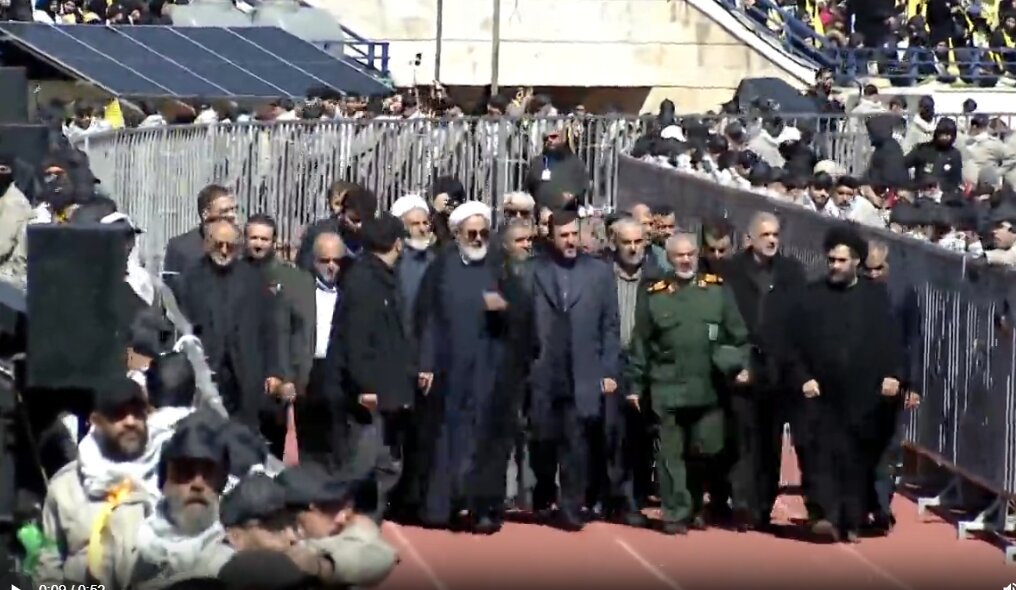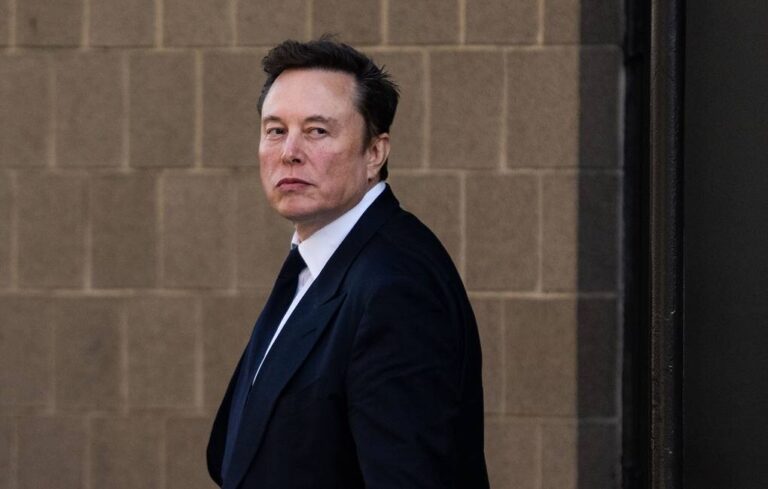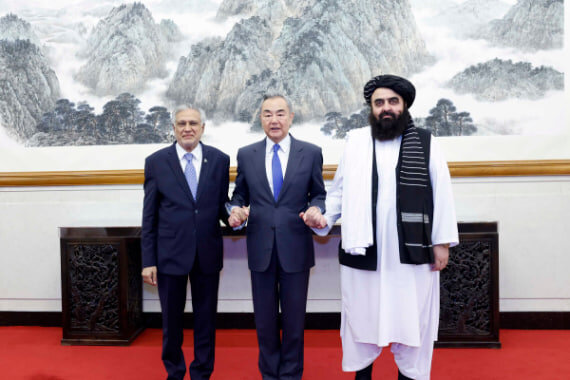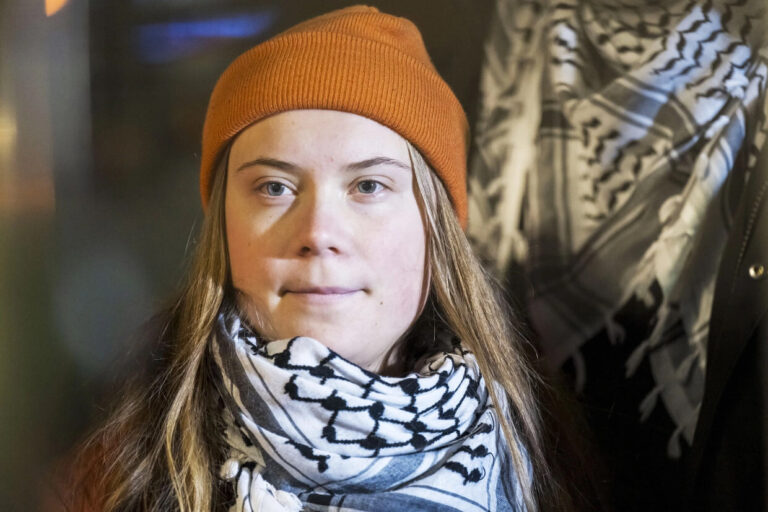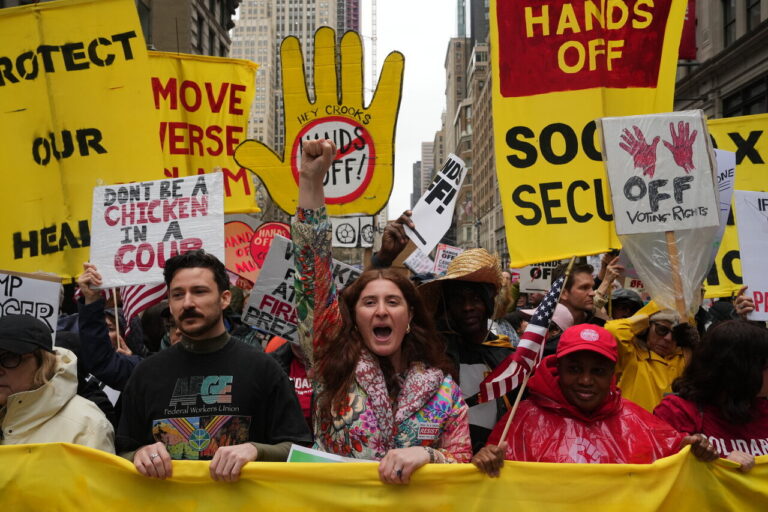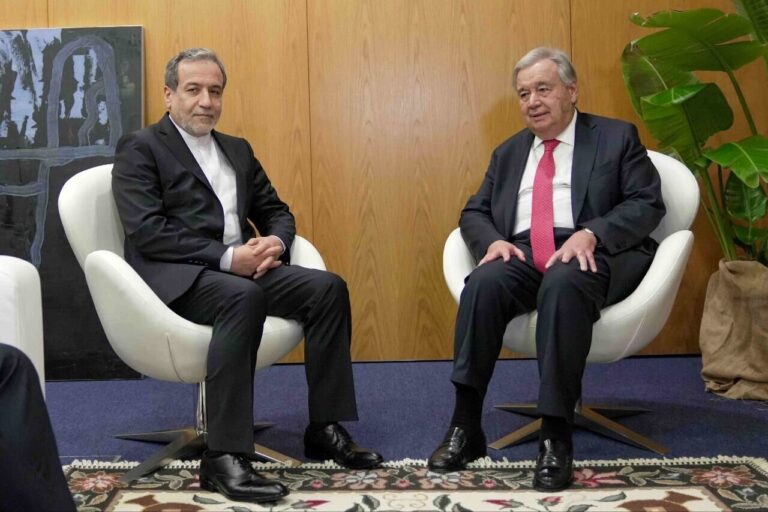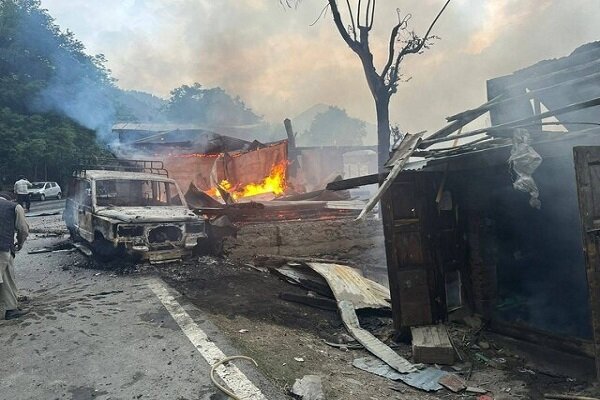Exclusive Video: Iranian Elite Attend Nasrallah’s Funeral in a Show of Solidarity
The recent funeral ceremony of the Hezbollah Secretary General in Beirut attracted significant attention, especially from a high-ranking Iranian delegation that participated in the event. This solemn occasion marked a pivotal moment in the region’s political landscape, underlining the intricate connections between Iran and Hezbollah.
On February 23, the Iranian delegation arrived in Beirut to pay their respects, reflecting the deep-rooted ties between Iran and the Hezbollah movement. This event not only served as a moment of mourning but also highlighted the ongoing geopolitical dynamics in the Middle East.
Key takeaways from the funeral ceremony include:
- Political Significance: The presence of the Iranian delegation underscored the alliance between Iran and Hezbollah, showcasing their mutual support and shared objectives in the region.
- Regional Implications: The ceremony highlighted the potential shifts in power dynamics within Lebanon and surrounding nations, as various factions react to the loss of a prominent leader.
- International Reactions: The global community is closely monitoring the situation, as the implications of this event could resonate beyond Lebanon, affecting international relations and regional stability.
Hezbollah’s Secretary General held a significant role in shaping the group’s policies and strategies, which have often been aligned with Iran’s interests in the region. The funeral drew a multitude of attendees, including political figures, supporters, and dignitaries, all of whom came to honor the late leader’s contributions.
As the ceremony unfolded, many speakers reflected on the Secretary General’s legacy, emphasizing his commitment to resistance against perceived threats and his role in the broader fight for sovereignty and dignity in the region. Attendees shared anecdotes and expressed their grief, highlighting not only the loss of a leader but also the impact of his vision on the movement.
The Iranian delegation’s visit to Beirut serves as a reminder of the strong connections between Tehran and Hezbollah, which date back decades. These ties are rooted in shared ideological beliefs and mutual interests, particularly in countering Western influence in the Middle East.
In the wake of the Secretary General’s passing, Hezbollah is likely to face both challenges and opportunities. The group must navigate its future leadership and strategy while addressing the expectations of its supporters and allies.
Some key issues that may arise in the coming weeks include:
- Succession Planning: Determining who will take up the mantle of leadership within Hezbollah and how they will carry forward the group’s agenda.
- Internal Cohesion: Maintaining unity among various factions within Hezbollah, especially during this transitional phase.
- Strategic Positioning: Assessing how to adapt their strategies in light of the current geopolitical landscape and the reactions from regional and international players.
In conclusion, the funeral of the Hezbollah Secretary General not only marked a significant moment of loss for the organization but also highlighted the complex web of alliances and tensions in the region. The high-ranking Iranian delegation’s participation emphasized the enduring relationship between Iran and Hezbollah, suggesting that their partnership will continue to shape the future of Lebanon and the broader Middle East.
As the situation develops, many will be watching closely to see how Hezbollah navigates this period of uncertainty and what it means for the ongoing dynamics within the region.
